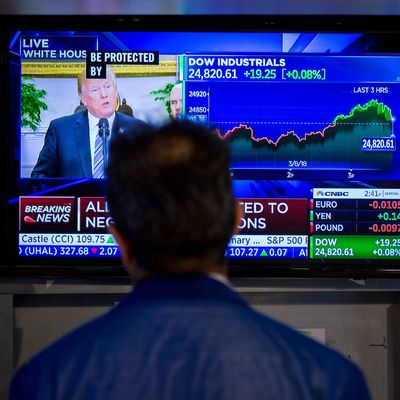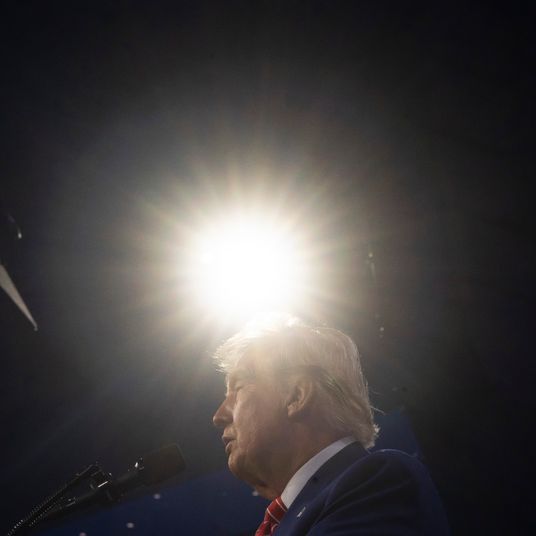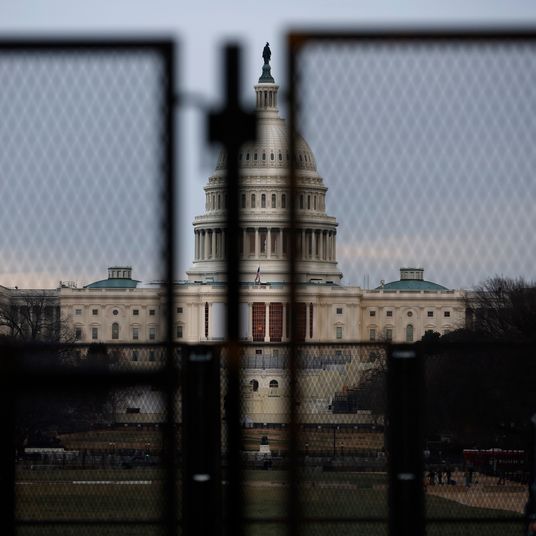
Most voters have a strong and fixed view about President Donald Trump, which is a reason the polling in the 2020 presidential election has been among the most stable on record. But the financial markets have been oddly fickle in their views of him. Throughout the 2016 campaign, events that made Trump more likely to win caused stocks to fall, while events pointing toward a Clinton win were bullish. That relationship persisted into Election Night, when stock futures plunged as it became clear Trump would pull off an upset win.
Then, literally overnight, sentiment changed: Trump gave a quasi-normal victory speech in the early morning hours of November 9, 2016; investors apparently started to focus on the likelihood of corporate tax cuts and deregulation rather than the chaos and trade wars expected with a Trump victory, and stock futures swung from a huge loss to a huge gain in the middle of the night. (Hong Kong–based Wall Street Journal reporter Mike Bird recently noted on Twitter that stocks’ reaction to the Trump win had him in the process of writing an explainer of “circuit breaker” rules that limit how much stock market futures can fall in a single session when they soared back up again, rendering that question moot.) A strong stock market rally kicked off then and persisted for more than three years. Trump has not always pleased the markets, especially when he has escalated trade wars, but broadly, they have reacted favorably to policy under his presidency — falling when it looked like he would be impeached, and even shaking off most of the steep losses that came with the coronavirus crisis.
But now, as Trump looks likely to lose his bid for reelection, bad news for him has become bullish again.
“Wait, Wall Street Is Pro-Biden Now?” the New York Times asked in an article published Wednesday, noting that stocks have reacted favorably to news events that made a clear Biden win more likely. The story points out two reasons for stock prices to rise when Biden looks more likely to win by a wide margin: reduced risk of the chaos that would be associated with a contested election, and increased odds that we will get another round of robust fiscal support to help the economy grow out of the COVID-driven slump.
I would add one additional reason for investors to be sanguine about the prospect of a Biden presidency, at least as expressed through stock prices: Markets already got the most important thing they wanted out of Republican rule — a big corporate tax cut. As part of the Tax Cuts and Jobs Act of 2017, the U.S. corporate income tax rate was reduced from 35 percent all the way to 21 percent, in line with a trend where peer countries had tended to significantly reduce corporate income tax rates over the last several decades. And in part because of that international environment of lower tax rates, Biden is not proposing to fully reverse that tax cut: He says he would raise the corporate tax rate, but only to 28 percent, close to where some Obama-era corporate tax proposals would have put it. He would also take steps to subject more corporate income to taxation and to tax more of wealthy investors’ income directly.
Any major revision to the tax code would have to go through a legislative process where corporations and investors would fight to limit their exposure. All of which is to say, stock investors just don’t need Republicans as much as they used to, because Republicans gave them the thing they wanted, and they’ll probably get to keep much of it even if Democrats take back control of the White House and Senate.
That said, the outlook under Biden is not equally great for every company. JP Morgan has produced an index of “Democrat Agenda Outperformers” that has shown industries better suited to policies of a likely Biden administration — such as those that benefit from investments in green technology or reduced trade tensions with China — outperforming those with more to fear, such as energy companies and companies with lots of low-wage employees. Tech companies have been doing fine, too — Democrats on Capitol Hill are talking a big game about breaking up “Big Tech,” but this hasn’t been a major driver of stock market concern; instead this feels a little bit like the Republican talking point of “Repeal and Replace” — it’s easy to gather people around a slogan, but the need to fill in legal and economic particulars once you actually run the government is likely to cause the movement to lose steam.
Finally, I should note that the stock market is not the economy — and it diverges from the economy in a way that is a little different from the way people usually talk about, and that may conceal negative feelings about a Biden win that persist among investors. Stock prices are supposed to represent the present value of future after-tax corporate profits: Stocks go up when companies are expected to be more profitable, or when they are expected to face a lower corporate tax burden, or when interest rates fall and make a given amount of money in the future more valuable today. All three of these forces have pushed stock prices up during the Trump administration. The stock market’s comfort with Biden suggests that investors believe the first and third factors would outweigh the second on his watch. But certain things may not show up in the stock price — most importantly, the taxes that an investor pays on income from stocks. If capital-gains tax rates go up, it becomes less profitable to own stocks, but that reduction in profitability is reflected on the stockholder’s tax return, not in a company’s financial statements and not necessarily in the stock price itself.
And the Biden tax plan proposes major increases in taxes on wealthy stockholders’ income. Biden says he would tax capital gains at the ordinary income rate of 39.6 percent for investors with incomes over $1 million, far above the current preferential rate of 23.8 percent. (For almost the entire history of the U.S. personal income tax, capital gains have been taxed at a preferential rate, in recognition of the fact that the tax on capital gains from stocks is a second layer of tax on the same income that is subjected to corporate income tax.) Biden would also eliminate the “step-up in basis” for capital gains, a provision that currently means capital gains are never taxed if the taxpayer dies while still holding an appreciated asset, such as a stock. In combination, these provisions would greatly increase the tax burden on stockholders and the federal government tax receipts that come from the investment income of wealthy people. But because they apply to shareholders’ income instead of corporate income, the risk to investors of that tax increase may not show up in the form of lower stock prices.
So, while there are good reasons to think Wall Street won’t miss Trump too much, the strong performance of the stock market is not inconsistent with the idea that Biden will redistribute wealth away from shareholders toward the middle class and the poor. The main hope on Wall Street will be that positive macroeconomic policies that support full employment and robust consumption will do enough to increase growth that they won’t have to worry too much about the tax burden.





























